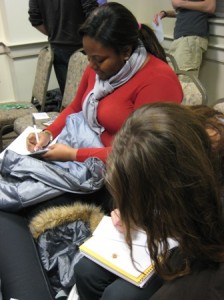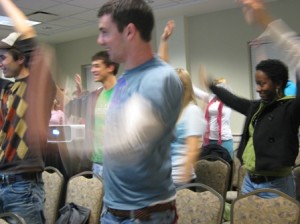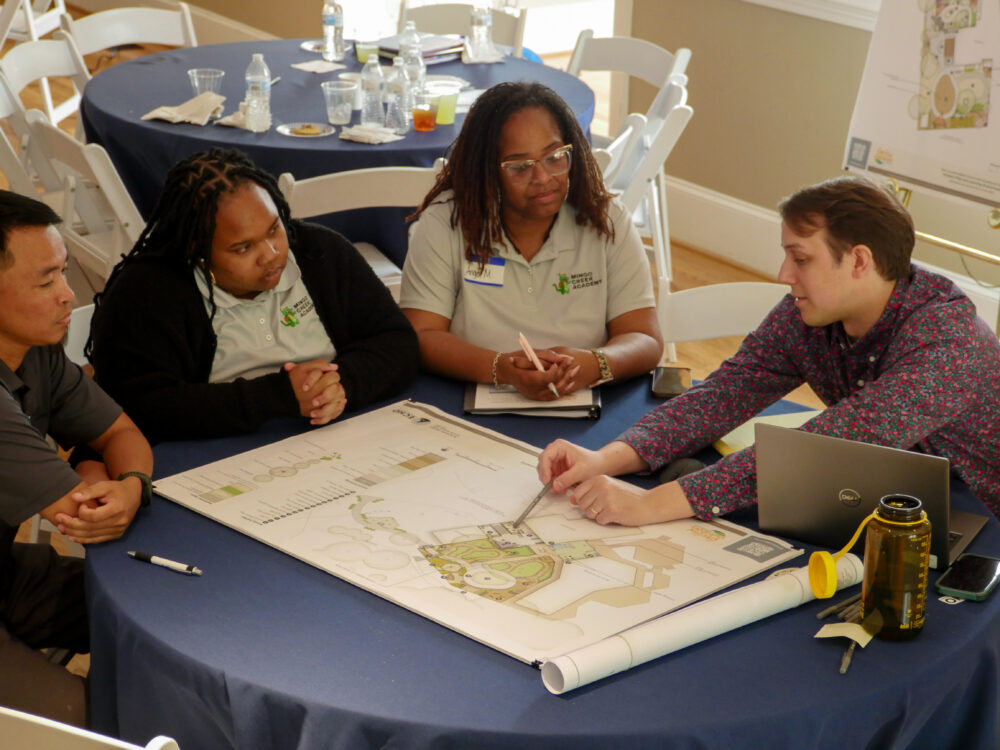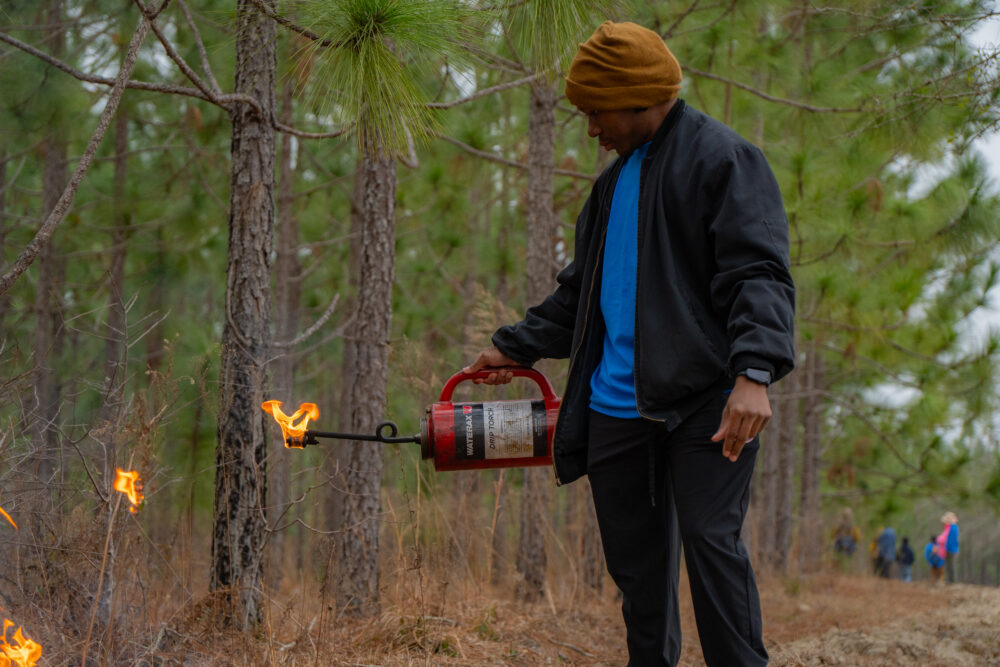We have much more to do and your continued support is needed now more than ever.
Finding Solutions in the First 100 Days of a New Administration
Five minutes before the meeting started, Scott Lupin, Director of the Office of Sustainability at UMD, could already see that more chairs would be needed. The room was packed, and students were quickly dispatched to bring extra chairs for everyone crowded up against the wall.

Speakers urged action on everything from emissions regulation in Maryland (through the Greenhouse Gas Reduction Act) to campaigning at PowerShift later this spring and lobbying their own administrators for more energy-efficient buildings on campus. Matt Dernoga, an active student member of UMD Clean Energy, said, “What was laughable two years ago is about to become a reality.”
Eban Goodstein, speaking in the broadcast, drew a laugh from the crowd when he said, “Thirty years from now, you won’t remember the paper you didn’t write. But you’ll remember the role you played in building a sustainable future.”
The students in question were thoughtful and excited by turns. Several noted that the clean energy campaign wasn’t purely about lobbying for emissions timetables (the darling of most climate legislation).
“My vision is windmills on the horizon, and more specifically, I guess, not being at the mercy of gas and energy prices all the time. I don’t want to go into a city and see people being disproportionately affected by dirty air from coal plants and high prices. I see healthier people, a healthier planet, better jobs. It’s all connected,” said Hanna Poffenbarger. She added that she herself wants a green job when she graduates, and that she’s looking at careers in sustainable agriculture.

Scott Lupin, who opened the meeting by telling the students that they have more power than administrators like himself to push clean energy on campus, believes that these national organizing events are worthwhile, but only the first step.
“To the extent they can, students should also take courses or find internships to get real-world experience. They really need to learn to work through existing political channels on campus. More important than demonstrating is to get on committees, join advocacy groups and effect change at their school,” said Lupin. “This is a great time to be working in this field.”





















